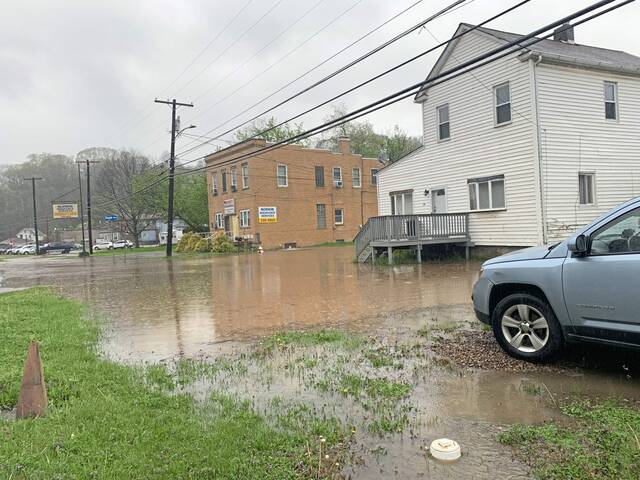The Supreme Court’s 6-3 ruling in West Virginia v. EPA is a disappointment to those who want to see strong, quick climate action. Given the volatility of implementing greenhouse gas reductions via actions from the executive branch, the impetus is now on Congress to act on climate change.
The court’s ruling blocked the EPA from using an emissions trading system to regulate greenhouse gasses. This removes one potential strategy for reducing greenhouse gas emissions like carbon dioxide, a crucial measure for avoiding the worst impacts of climate change. In her dissenting opinion, Elena Kagan noted some of these impacts, including erosion, increased frequency of damaging storms, drought, increased deaths due to heat, difficulties in food production and instabilities associated with destruction of our natural environment.
Western Pennsylvania is already feeling the impact of climate change. PennDOT has experienced record-breaking impacts from floods and landslides that have cost over $125.7 million extra for infrastructure replacement in 2018 alone. Pennsylvania already has the highest number of cases of Lyme disease in the nation, with nearly 12,000 in 2017 — triple the number from just 10 years ago. This increase is possibly due to the western expansion of Lyme-bearing ticks and warmer winters that are leading to higher tick populations.
Higher temperatures lead to higher concentrations of ground-level ozone, which can lead to increased asthma rates. Allegheny county already has an ‘F’ grade from the American Lung Association. Higher temperatures and more ground-level ozone would only make our air quality worse.
Effective legislation passed through Congress could make substantial emission cuts. Indeed, the majority opinion by Chief Justice John Roberts states, “We presume that ‘Congress intends to make major policy decisions itself, not leave those decisions to agencies.’”
Congress has the opportunity to enact widely supported measures. According to Yale Climate Connections, 61% of Americans believe that Congress should act on some of the most popular policy options to address global warming, including “fund research into renewable energy” (77% support), “provide tax rebates for energy efficient vehicles and solar panels” (77% support), “regulate CO2 as a pollutant” (72% support) and “require fossil fuel companies to pay a carbon tax” (66% support).
Incentives and funding research are much needed policy tools. However, some form of carbon pricing is needed to drive the emissions cuts that scientists have indicated that we need to make to avoid the worst effects of climate change. Incentives alone can leave loopholes where more emissions can be driven by normal economic activity.
For example, if an incentive is created for solar installation, the newly installed solar will not help drive emissions lower if the overall demand for energy increases. However, a carbon price would make people consider their energy choices more carefully and provide an incentive for choosing more energy efficient options.
Additionally, a carbon price coupled with a border adjustment could help to tackle this global issue on a global scale. A border adjustment tax would encourage other countries to reduce their emissions if they wanted to sell their goods in the U.S. market, and it would prevent industries from simply moving jobs and factories to countries which allowed more carbon pollution.
The Democrats’ razor-thin Senate majority may seem to limit opportunities, but legislation is not impossible. Sen. Joe Manchin, D-W.Va., has signaled he could support some climate provisions in a trimmed down version of the “Build Back Better” bill, including a fee on emissions of the greenhouse gas methane and a carbon border tax.
Now is not the time to leave the table empty handed given the urgency of climate action. Every bit of warming matters. Every year matters. Every choice matters. Call Sen. Bob Casey and your representatives and tell them that the time to act is now.
Dana Siler is co-group leader of the Pittsburgh chapter of Citizens’ Climate Lobby.








